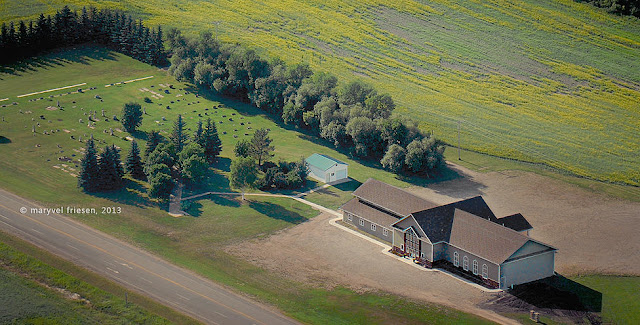"Darkness cannot drive out darkness"
 |
| A light on a hill? The salt on your potatoes? (Photo by Maryvel Friesen) |
"The
ultimate weakness of violence is that it is a descending spiral,
begetting the very thing it seeks to destroy.
Instead of diminishing evil, it multiplies it.
Through violence you may murder the liar,
but you cannot murder the lie, nor establish the truth.
Through violence you may murder the hater,
but you do not murder hate.
In fact, violence merely increases hate.
So it goes.
Returning violence for violence multiplies violence,
adding deeper darkness to a night already devoid of stars.
Darkness cannot drive out darkness:
only light can do that.
Hate cannot drive out hate: only love can do that."
Dr. Martin Luther King, Jr.
begetting the very thing it seeks to destroy.
Instead of diminishing evil, it multiplies it.
Through violence you may murder the liar,
but you cannot murder the lie, nor establish the truth.
Through violence you may murder the hater,
but you do not murder hate.
In fact, violence merely increases hate.
So it goes.
Returning violence for violence multiplies violence,
adding deeper darkness to a night already devoid of stars.
Darkness cannot drive out darkness:
only light can do that.
Hate cannot drive out hate: only love can do that."
Dr. Martin Luther King, Jr.
It seems almost absurd to apply Martin
Luther King’s words on the futility of violence to current affairs.
For instance, could it be possible that bombing ISIS positions in
Iraq and Syria is a strategy of futility? A game plan that is
patently part of King's “downward spiral” leading to ever-increasing violence? That love applied in that case constitutes the only option
with any hope of ending the hate and the brutality characterizing this conflict?
And if love were
to be the allied strategy, what would that look like? Would it mean
convening a face-to-face conversation with ISIS leadership to listen
to their complaints, their vision of what the world ought to look
like? Would it include withdrawing all military intervention and
replacing it with material aid? And if that were to be done, would it
guarantee a reduction in hate, a de-escalation of violence? Is this a
case where—figuratively—light would be able to drive out darkness?
Even
the most verbally-ardent of Christians have a hard time embracing central tenets of the gospel when violence erupts. Moderate
Christians are equally hard-pressed to embrace a strategy of love
when their lives or livelihoods appear to be threatened. The
temptation to depend on missiles and guns to protect us and ours is
strong, but a central tenet of the gospel is that the kingdom
established by Christ is not a kingdom like any other
on earth. Certainly, we can find excuses for shoring up our defenses
and arming ourselves in the interest of our physical safety, even in
the New Testament. But to say that Luke
22:38 or Romans 13:3-5 trump Matthew 5:38-42; 43-48 is to engage in proof-texted defense of an already-held position. And this position
might be grounded in fear . . . an attribute that a
sincere rebirth should have extinguished in us.
That
the Gospel Christian is called to dedicate his very life to the
building of the kingdom of peace and love is indisputably central to
Jesus’ teaching as recorded in the Gospels. I can’t see Jesus dropping bombs on ISIS or
anyone, or supporting those who do; I can’t see him building
defense fortresses to keep out the enemy; I can’t see Jesus
despising anyone trapped by a label: gay, black, Muslim, Indian,
materialistic, arrogant, dishonest, avaricious, Buddhist, Chinese,
poor, Latin, whore, soldier, man, woman, disabled, Jew, Baptist, Russian, fundamentalist, liberal, etc., etc., etc.
Like a hospital does not turn away people because they’re sick, a
true Church knows itself to be a place of healing, not a comfortable
refuge for the already-well, the already-blessed.
And
the only treatment this healing church knows or trusts is the
ointment of love given in the name of Christ. A balm that would by
now have revolutionized a sin-sick world if we had not time and again
resorted to self-defense as our most urgent need, to turning away the sick in
order to keep the hospital clean, to diabolical alliances with the
kingdoms of this world. (Think residential schools, for instance.)
To
losing our lives in fearful attempts to save them.
“You
are the salt of the earth. But if salt loses its flavor, how can it
be made salty again? It is no longer good for anything except to be
thrown out and trampled on by people.” Matthew 5:13



Indeed and Amen!
ReplyDeleteTom